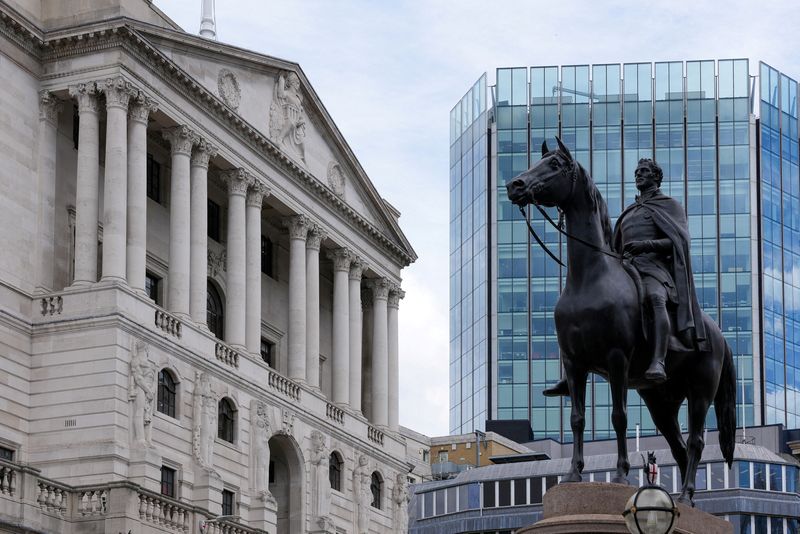LONDON (Reuters) - A dramatic upswing in British government bond yields this week triggered calls for cash from defined benefit pension funds, forcing them to slash positions and prompt the Bank of England to mount an emergency 65 billion pound ($69 billion) bond buying programme in an effort to stabilise the market.
WHAT ARE DEFINED BENEFIT PENSION SCHEMES?
Defined benefit (DB) pension schemes pay pensioners a fixed annual amount, often a proportion of the final salary they earned as employees.
Most such schemes are closed to new members because of their cost. But there are around 2 trillion pounds ($2.15 trillion) in DB pension scheme assets in Britain.
The pension schemes invest typically more than half of their assets in bonds, in order to pay pension liabilities decades into the future.
HOW ARE THEY HEDGED?
To avoid being exposed to market volatility, the schemes typically hedge their positions through gilt derivatives managed by so-called liability-driven investment (LDI) funds.
For example, pension schemes might pay the floating rate leg of an interest rate swap and receive fixed rates, according to Chris Arcari, head of capital markets at consultants Hymans Robertson.
The funds are leveraged which increases their exposure to market moves.
WHY WERE THEY ASKED FOR COLLATERAL?
If yields go up too far and too fast, the schemes need to provide more cash - or collateral - to the LDI funds because their positions become loss-making - they are paying out more money in the transaction than they are receiving.
Patrick O'Sullivan, head of investment consulting at Redington, said he advised schemes to have cash reserves to cope with a 200 basis point rise in swap rates over a year. However, 30-year gilt interest rate swaps [GBPSB6L30Y=], for example, rose 360 bps this year and 120 bps in the last few days, before the BoE stepped in.
Pension schemes have already faced calls for collateral this year but the moves this week prompted emergency calls - so they may only have had a couple of days to pay up.
WHY DID THEY SELL GILTS?
Two reasons, pensions advisers say.
Pension schemes either sold gilts to get hold of ready cash to meet those collateral calls, or they were kicked out of their derivatives positions because they could not pay up in time and had to sell gilts to avoid having a naked exposure to further sharp moves. LDI funds also sold index-linked gilts to shore up the cash in their funds.
WHAT WILL THE BANK OF ENGLAND MOVE DO?
Calm the situation. "That ought to give schemes time to process transactions in an orderly manner to get their position in order so is very welcome," said Dan Mikulskis, investment partner at consultants LCP.
The Pensions Regulator said it welcomed the move.
LDI funds had put pressure on the Bank of England to act, consultants said. "There are schemes running out of cash," one said.
WHO MANAGES LDI FUNDS?
Major fund managers such as BlackRock (NYSE:BLK), Legal & General, Columbia Threadneedle, Insight Investment and Schroders (LON:SDR). Columbia Threadneedle confirmed it had spoken to the BoE on the issue. The other managers did not comment.
WILL MY PENSION BE WORSE OFF?
Pension funds have a short-term problem in managing their gilt exposure but higher rates reduce the amount of money they need to hold now to pay pensions into the future. So this should make their funding positions stronger than before, making it easier for them to pay pensions in the future. There is no issue about their solvency or about the payment of current pensions, sources say.
($1 = 0.9304 pounds)
